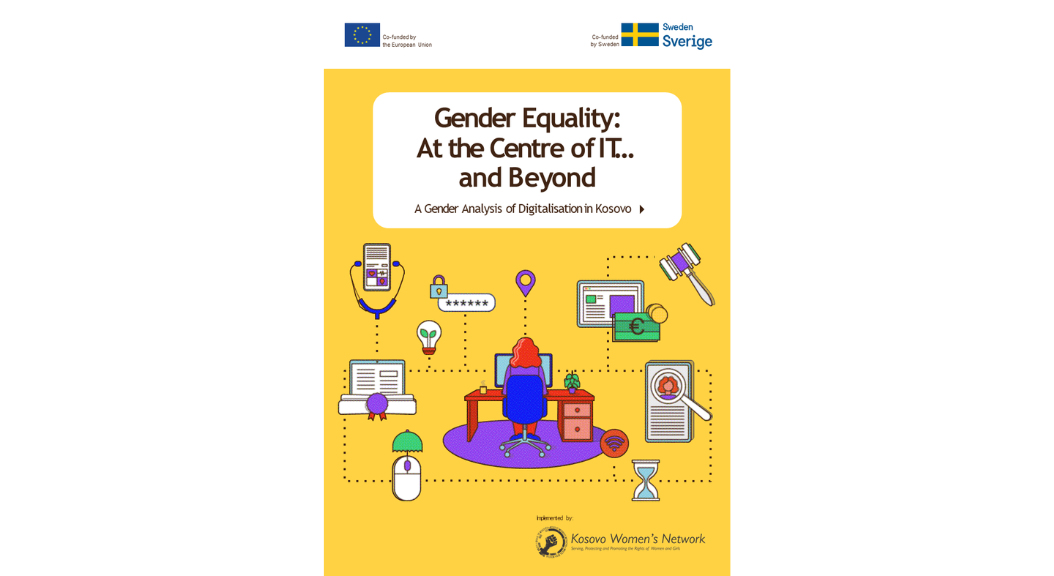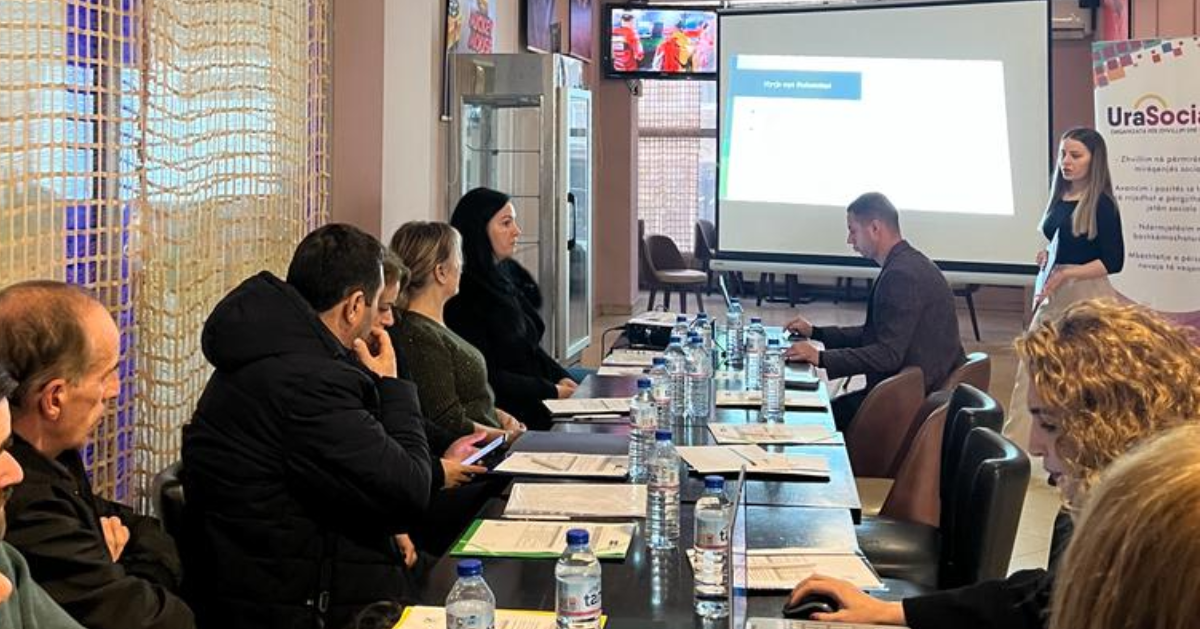On 12 Feb., the Kosovo Women’s Network (KWN) launched its research report: Gender Equality: At the Centre of IT… and Beyond: A Gender Analysis of Digitalisation in Kosovo. The gender analysis holds significant policy importance as it aims to support the Government of Kosovo in integrating a gender perspective in public policies related to digital reforms, offering evidence-based recommendations. Additionally, the analysis aims to support the European Union (EU) with gender analysis to inform programming related to the Instrument for Pre-Accession (IPA) III and policy dialogues. Further, it seeks to provide civil society with findings and recommendations that can inform advocacy a more gender-responsive EU Accession process.
In his speech, the Head of the European Union Office in Kosovo and EU Special Representative, Ambassador Tomas Szunyog, said: “Kosovo is undergoing an important digital transformation in which no one should be left behind. This EU-funded Gender Analysis provides a detailed description of the current situation and can be a useful resource for the Kosovo Government to make the planned digitalisation-related reforms more inclusive. I am proud that the EU, the largest provider of financial assistance to Kosovo, is actively supporting this process.”
KWN invited representatives from several key institutions to participate in the launch, during which they updated the audience on the latest developments in digital reforms and reflected on the key findings and recommendations presented by KWN.
Agon Dobruna, Deputy Minister of the Ministry of Finance, Labour, and Transfers (MFLT), emphasised that MFLT is highly committed to achieving gender balance, including in platforms it is designing regarding employment, such as Superjob. Further, he stated that he will advocate for the recommendations arising from this gender analysis to inform future labour legislation.
Agim Kukaj from the Ministry of Economy (ME) stated that Kosovo has made significant progress towards digitalisation and that the progress in this sector should be used to advance women and girls’ positions in digital employment, access to healthcare, and further skills development. He also emphasised that the Ministry of Economy will aim to integrate a gender perspective, in line with the findings and recommendations from KWN’s gender analysis, into the strategy that ME plans to draft in the ICT sector for 2024.
Shkëndije Shala, from the Agency for Informative Society (AIS), emphasised that AIS is in the process of launching the Open Data Kosovo platform, which will ensure data processing disaggregated by gender, among other categories. Processing data disaggregated by gender has been one of the key recommendations of this report, towards analysing the real situation of women and men regarding digital transformation.
Nazlije Balaj from the Ministry of Justice said, “This report by KWN is a reflection of institutional achievements in relation to digitalisation.” She stated that the work of KWN is highly important and praised the accurate findings. Balaj pledged that the Ministry of Justice will consider the findings in improving legal definitions to combat cyberviolence and gender-based violence, focusing on girls and women.
Meanwhile, Albert Aliu, a consultant from the Ministry of Environment, Science, Technology, and Innovation (MESTI), congratulated KWN’s work in identifying gender gaps towards digitalisation, emphasising that MESTI will soon functionalise a department on digitalisation and technology, as well as an online platform called “Learning Passport”, where both teachers and children will have the opportunity to enhance their digital capacities.
KWN’s comprehensive gender analysis discusses the gender-responsiveness of digitalisation processes related to several relevant sectors for Kosovo’s development and EU Accession, including the work of the Assembly, the Government, public administration, gender-responsive budgeting, law enforcement, social services, education, employment, labour, business, trade, agriculture, environmental protection, climate change response, energy, healthcare and media. KWN hopes that this analysis will serve as a basis for all interested parties involved in digital reforms. KWN also encourages the use of its methodology and innovative conceptual model elsewhere in the world for gender analyses of digitalisation.
The report is on KWN’s website. The gender analysis was co-funded by the European Union and Sweden, as part of the Coalition for Gender Equality in the EU Accession Process (EQUAPRO) Action “Advancing gender equality through the EU Accession process”.







